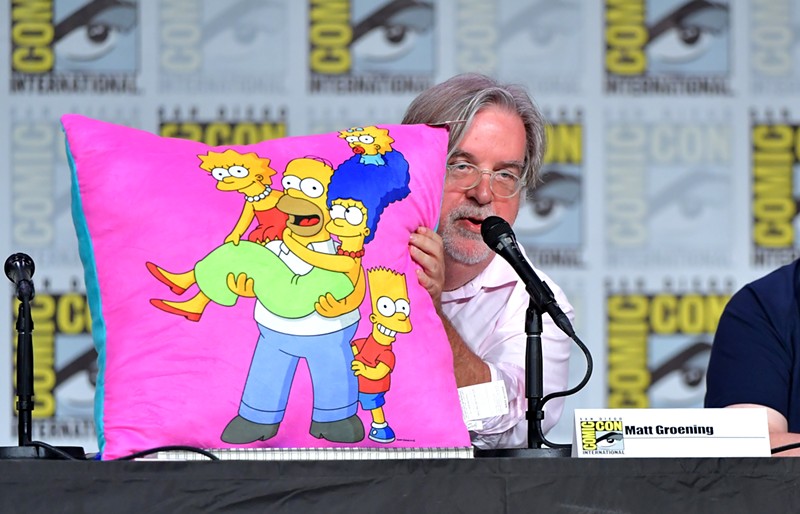First, disgraced former Congressman George Santos sued Jimmy Kimmel in mid-February for tricking him into making a series of unflattering cameo videos. And earlier this year, former President Donald Trump went and did something that’s such a departure from his character and reputation by suing George Stephanopoulos for defamation.
But you need not look to political stunts like these to enjoy fun-filled, TV-related lawsuits. A copyright infringement lawsuit was dismissed in March against ABC and the creators of Abbott Elementary. The plaintiff, Christine Davis, alleged that the entire series was a rip-off of a script she wrote called “This School Year.”
Of course, lawsuits related to television are particularly fascinating since the evidence is out there for everyone to see. Plus, there is something strangely satisfying about watching a TV episode and knowing that a network spent tens, if not hundreds of thousands, of dollars fighting for and by it in court.
Just for the hell of it, here are seven episodes that scratch that itch.
Family Guy, “Peterotica”
Air date: April 3, 2006
Case name and citation: Burnett v. 20th Century Fox, 491 F.Supp.2d 962 (C.D. Cal. 2007)
In typical Family Guy fashion, this involved a pop culture parody that gleefully subverted all that is family-friendly and wholesome. The result was so prurient and ribald that it prompted comedy legend Carol Burnett to file an intellectual property infringement lawsuit.
The parody in question involved a scene where characters Peter, Quagmire, Joe and Cleveland go to a sex shop. Ever the sex-crazed scoundrel, Quagmire makes a series of crass one-liners, with Burnett in the crosshairs. After he reveals that Burnett works as a janitor at the sex shop, Burnett’s “Charwoman” character from The Carol Burnett Show is seen mopping. Joe then remarks, “You know, when she tugged her ear at the end of that show, she was really saying goodnight to her mom,” to which Quagmire responds, “I wonder what she tugged to say goodnight to her dad."
The United States District Court for the Central District of California ultimately sided with Twentieth Century Fox, finding that the appropriation of Burnett’s likeness constituted fair use. Still, to soften the blow, District Court Judge Harry Pregerson called Burnett “an icon in American culture” and disparaged Family Guy in the written opinion, saying, “As Ms. Burnett well knows, it takes far more creative talent to create a character such as the 'Charwoman' than to use such characters in a crude parody.”
Making a Murderer
Air date: Dec. 18, 2015 – Oct. 19, 2018
Case name and citation: Colborn v. Netflix, Inc., 541 F.Supp.3d 888 (E.D. Wis. 2021)
In late 2015, it seemed that everyone and their dog’s endocrinologist was watching the Netflix true crime docuseries Making a Murderer. The series tells of Steven Avery, a Wisconsin man who was convicted of sexual assault and attempted murder but was later exonerated thanks to the advent of DNA evidence. Avery filed a civil suit against Manitowoc County for the 18 years of imprisonment that resulted from his wrongful conviction. While that suit was pending in 2005, Avery was arrested yet again for the murder of Teresa Halbach. He was convicted for this murder in 2007 and has since been fighting for post-conviction relief while serving an ongoing life sentence.
Former Manitowoc County law enforcement officer Andrew Colborn was a witness in the murder trial, and as he tells it, Netflix falsely portrayed him as a corrupt cop who was willing to plant evidence to secure Avery’s conviction. He sued Netflix for defamation, negligence and intentional infliction of emotional distress.
The Eastern District of Wisconsin held that the First Amendment precluded the negligence claim but not the intentional infliction or defamation claims. In March 2023, the same court granted summary judgment in Netflix’s favor, finding that the documentary did not rise to defamation or intentional infliction of emotional distress.
Last Week Tonight with John Oliver, “Coal”
Air date: June 18, 2017
Case name and citation: Marshall County Coal Co. v. Oliver, No. 5:17-CV-99, 2017 WL 10436072 (N.D. W. Va. Aug. 10, 2017)
Speaking of defamation, John Oliver and the team behind HBO’s Last Week Tonight famously got sued by now-deceased energy mogul Bob Murray. It all stemmed from a segment Oliver did on the coal industry, wherein Murray and his company, Murray Energy, were portrayed in an unflattering light. The statements that got Murray's back up included an implication that the company was “on the same side as black lung,” a reference to the Crandall Canyon Mine collapse and a zinger about Murray being “a geriatric Dr. Evil.”
The frivolous lawsuit was eventually dismissed, but as Oliver himself said in the “SLAPP Suits” episode embedded below, the stress from the legal fallout was the whole point. As a middle finger for initiating the dog and pony show, Oliver and his team performed a musical number called “Eat Shit, Bob!”, which included an appearance from Broadway legend Brian d’Arcy James.
The Simpsons, “Bart the Murderer” and other episodes
Air date: Oct. 10, 1991
Case name and citation: Sivero v. 20th Century Fox, B266469, 2018 WL 833696
Frank Sivero, whom you probably know best as Genco Abbandando from The Godfather Part II, clearly did not like the Fat Tony character from The Simpsons. He was so averse to the character, in fact, that he sued Twentieth Century Fox for misappropriation of his likeness. The state trial court granted Fox’s motion to strike the civil complaint, and the state appellate court affirmed it while awarding the defendant legal fees for the appeal.
Better Call Saul, “Carrot and Stick”
Air date: April 18, 2022
Case name and citation: JTX Tax LLC v. AMC Networks, Inc., 22 Civ. 6526, 2023 WL 6215299 (S.D.N.Y. Sept. 25, 2023)
You know those Liberty Tax Service places that often occupy seedy strip malls and have an inflatable Statue of Liberty out front? Turns out, that company thought Better Call Saul was diluting its trademark and defaming the company by associating its brand with criminal activity.
The episode involved characters Craig and Betsy Kettleman, a corrupt husband-and-wife duo who operate a business called “Sweet Liberty Tax Services.” Admittedly, the name of that company is quite similar, seeing as how the writers added only the word “Sweet” and made the word “service” plural. The branding of the fictional tax service also prominently displays the Statue of Liberty and includes red, white and blue color schemes.
On the other hand, there’s no trademark on one of the most ubiquitous patriotic emblems. And as the Southern District of New York pointed out in its holding, there is no evidence of a single consumer encountering brand confusion as a result of this depiction.
Suffice to say, this lawsuit got dismissed. In case you’re not keeping score, that’s 5–0 for TV producers.
Roc, “No Notes Is Good Notes”
Air date: Jan. 12, 1992
Case name and citation: Ringgold v. Black Entertainment Television, Inc., 126 F.3d 70 (2d Cir. 1997)
The late artist Faith Ringgold got into a legal battle with BET for copyright infringement after her piece “Church Picnic Story Quilt” was portrayed on the dramedy Roc.
Unlike the previous lawsuits, this one turned out to be a victory for the plaintiff. BET unsuccessfully used a doctrine called de minimis as a defense, which, in layman’s terms, means, “This is such a minor thing, so why are we roping the court into this?”
Moral of the story: if you’re going to use someone’s art as a set decoration, you best be getting their beak wet.
Real Sports with Bryant Gumbel, “Children of the Industry”
Air date: Sept. 16, 2008
Case name and citation: Mitre Sports International, Ltd. v. Home Box Office, Inc., 22 F.Supp.3d 240 (S.D.N.Y. 2014)
In a legal controversy that got considerable press coverage, HBO was sued for defamation for a September 2008 segment regarding use of child labor in India for soccer ball production. The plaintiff was the company Mitre Sports International, which alleged it was particularly singled out in this segment, especially in the following exchange between host Bryant Gumbel and correspondent Bernard Goldberg:
GOLDBERG: “Are we supposed to believe that Mitre, for instance, which is just one of the many companies that, that are involved in this ... is going to know what's happening on a side street in Jalandhar, India? It's hard. It's very hard.”
GUMBEL: “I understand that, but when they say they investigated it, are they just lousy investigators or are they lying?”
GOLDBERG: “I don't believe they're lying ... I honestly believe that Mitre and all the other companies would like this to be wiped out once and for all ... But we found it. We found it ...”
GUMBEL: "How good can their investigations be? How hard can they be trying?”
GOLDBERG: “I don't believe Mitre wants it to happen, but the subcontractors are a different story altogether. The subcontractors don't want to hire those kids' parents ... They don't want to do that, because the kids are making a nickel an hour. The kids aren't yelling to organize.”
The court found that for defamation purposes, Mitre was not a public figure, and therefore the standard of proving defamation is lower. Despite this, HBO ended up winning the case, with the Manhattan jury unanimously finding that the segment was not legally defamatory.













